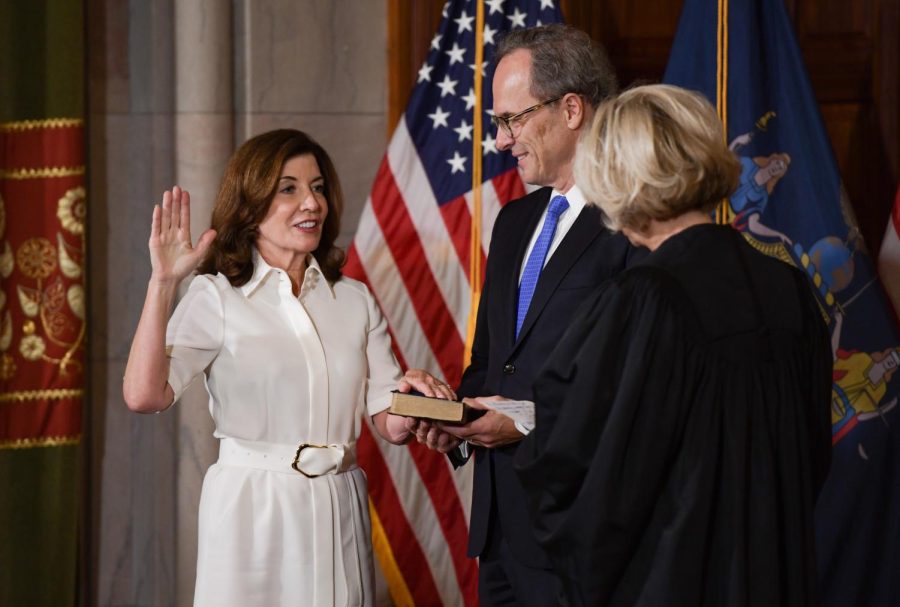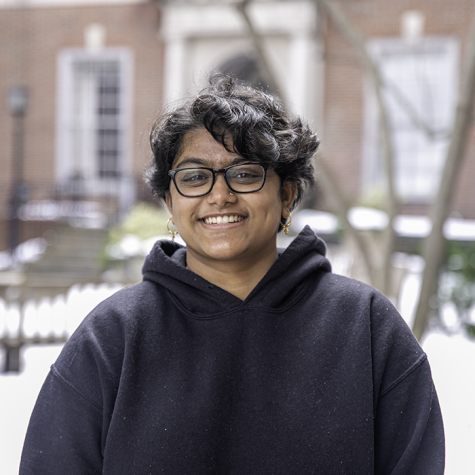Opinion: Hochul’s budget cut to NYPL Black culture center is shameful
Gov. Kathy Hochul is planning to cut $250,000 from the New York Public Library’s Schomburg Center for Research in Black Culture. The timing of this horrible decision, the start of Black History Month, only makes it more offensive.
On Aug. 24, 2021, Kathy Hochul was sworn in as New York’s first female governor. Hochul is now planning to cut $250,000 from the Schomburg Center for Research in Black Culture during Black History Month. (Image via Wikimedia Commons)
February 11, 2022
“Happy Black History Month! Governor Kathy Hochul wants to cut $250,000 in funding from the [Schomburg Center for Research in Black Culture] and $75k from the Langston Hughes Community Library,” New York state assemblymember Zohran Kwame Mamdani tweeted on Feb. 1, breaking the news of New York Gov. Kathy Hochul’s decision. The governor’s administration has yet to publicly provide a justification for this decision.
The Schomburg is a pillar of Black cultures and histories in New York City, the country and the world. The center opened in 1925 as a special collection of the 135th Street Branch Library. It was later renamed after historian Arturo Alfonso Schomburg following the addition of his expansive personal collections. Its collections and programs comprise of 11 million items that reflect the cultures and experiences of people of African descent — it was even named as a National Historic Landmark by the National Parks Service.
The center houses some of the most seminal contributions to U.S. culture and history across its many departments. Its Manuscripts, Archives and Rare Books division notably possesses the Langston Hughes Collection, the Maya Angelou papers and the James Baldwin papers. The research rooms at the Schomburg serve as the starting point for documentarians, authors and historians who do the careful work of turning important primary sources into whole pieces of work that go on to educate millions of people worldwide.
Perhaps the most crucial service the Schomburg provides is its educational and public-facing programming. It hosts seminars, forums, workshops, staged readings, film screenings, performing arts programs and special events year-round in its renowned Langston Hughes Auditorium. Though programs were halted on account of the pandemic, they will now resume on Feb. 13.
“A lot of government figures were performatively supporting the Black Lives Matter movement during 2020 — while it was en vogue,” said Olivia Newsome, a CAS senior at NYU who is a current page at the center. “White politicians use it as cultural capital, but don’t actually believe in or care about what the movement means. Black art, history and culture are important. I am tired of seeing Black history and Black culture consistently undervalued and under attack all the time — from budget cuts to physical violence.”
Hochul’s proposed budget cuts come at a time when some U.S. politicians and civilians are rallying against the teaching of Black history in public school classrooms, due to their vilification of critical race theory. New and proposed legislation across the country bans “the discussion, training, and/or orientation that the United States is inherently racist as well as any discussions about conscious and unconscious bias, privilege, discrimination, and oppression,” according to the Brookings Institution.
The Schomburg operates daily, connecting communities with Black history and culture. It provides a space where the preservation and upkeep of Black art, literature, culture and history are of the utmost importance and priority — a mission that seldom exists elsewhere.
Cutting the funding of a monument of Black history and culture is only an extension of the disregard that the U.S. government shown toward Black people. To cut nearly a quarter of a million dollars from one of the greatest preservers of Black history during Black History Month is reprehensible.
Hochul should rethink her decision and reflect on the enormity of her actions during a month dedicated to celebrating Black people, Black culture, Black history and the infinite revolutionary contributions Black Americans have made to the world we know today.
Contact Srishti Bungle at [email protected].

























































































































































